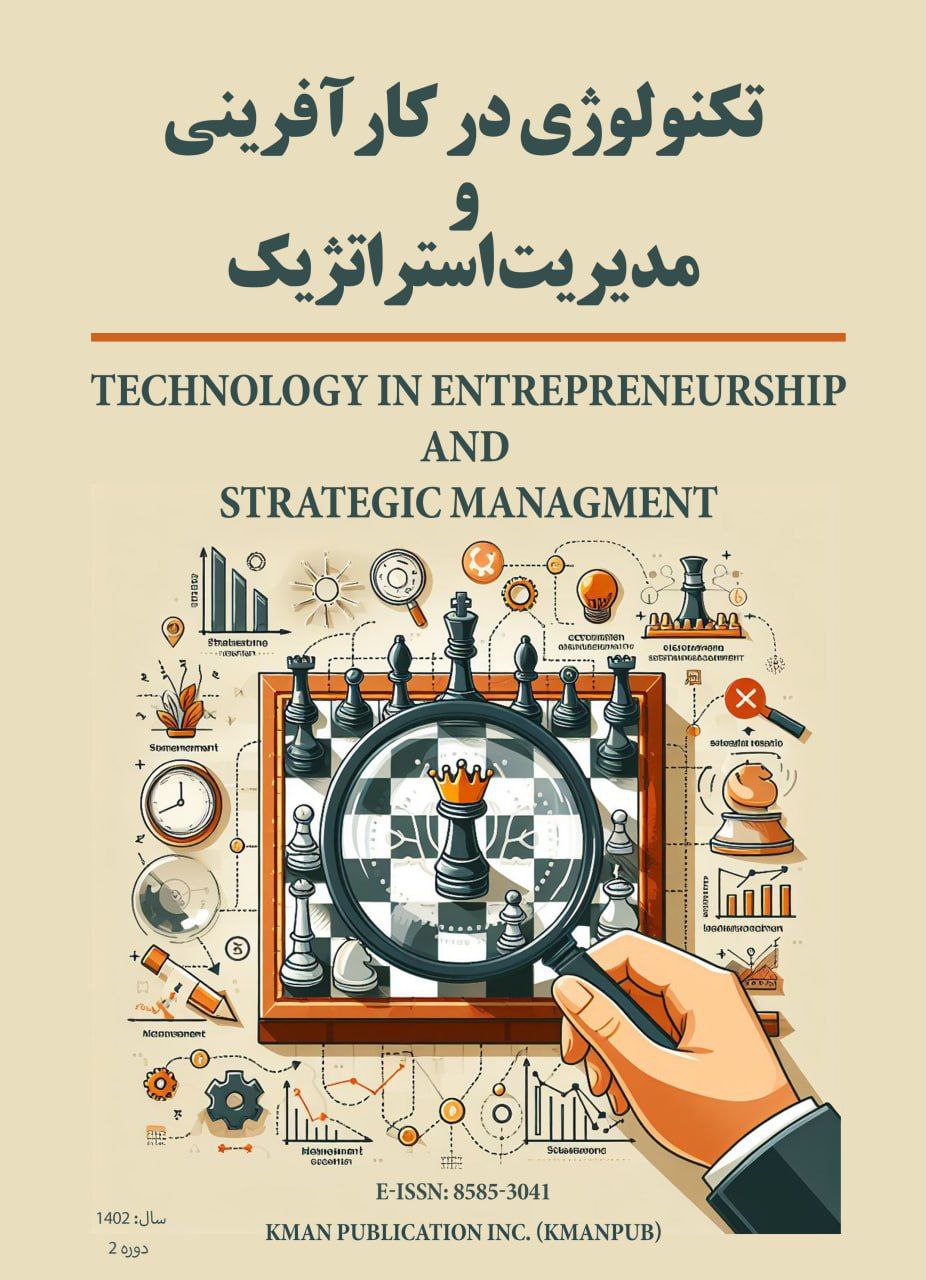Ethical and Legal Challenges of Using Artificial Intelligence in Digital Businesses
Keywords:
Artificial Intelligence, Ethical Challenges, Legal Challenges, Digital Businesses, AI Accountability, Privacy Intellectual Property, Data RegulationAbstract
This study aims to explore and analyze the ethical and legal challenges posed by the use of artificial intelligence (AI) in digital businesses, highlighting the need for robust guidelines and frameworks to guide responsible AI implementation. Adopting a qualitative research approach, data were collected through semi-structured interviews with 20 experts from diverse fields related to digital businesses and AI. The content analysis method was employed to identify main themes, categories, and concepts within the ethical and legal realms of AI usage. Two main themes emerged: ethical challenges and legal challenges. Ethical challenges encompassed categories such as privacy violations, discriminatory practices, and AI accountability. Legal challenges included intellectual property rights, data regulations, and surveillance and control issues. The analysis revealed a complex landscape of ethical dilemmas and legal uncertainties that digital businesses face when implementing AI technologies. The study concludes that navigating the ethical and legal challenges of AI in digital businesses requires a multi-faceted approach, emphasizing the importance of developing comprehensive ethical guidelines and legal frameworks. These measures should ensure AI technologies are used in ways that respect human rights and promote fairness and transparency in the digital economy.
Downloads
References
Chen, Z. (2022). Collaboration Among Recruiters and Artificial Intelligence: Removing Human Prejudices in Employment.
Cognition Technology & Work. https://doi.org/10.1007/s10111-022-00716-0
Cheruvalath, R. (2022). Artificial Intelligent Systems and Ethical Agency. Journal of Human Values.
https://doi.org/10.1177/09716858221119546
Donath, J. (2020). Commentary: The Ethical Use of Powerful Words and Persuasive Machines. Journal of Marketing.
https://doi.org/10.1177/0022242920973975
Koshiyama, A., Kazim, E., & Treleaven, P. (2022). Algorithm Auditing: Managing the Legal, Ethical, and Technological Risks
of Artificial Intelligence, Machine Learning, and Associated Algorithms. Computer.
https://doi.org/10.1109/mc.2021.3067225
Lagioia, F., Jabłonowska, A., Liepiņa, R., & Drazewski, K. (2022). AI in Search of Unfairness in Consumer Contracts: The
Terms of Service Landscape. Journal of Consumer Policy. https://doi.org/10.1007/s10603-022-09520-9
Larsson, S. (2020). On the Governance of Artificial Intelligence Through Ethics Guidelines. Asian Journal of Law and Society.
https://doi.org/10.1017/als.2020.19
Mogaji, E., Soetan, T., & Kieu, T. A. (2020). The Implications of Artificial Intelligence on the Digital Marketing of Financial
Services to Vulnerable Customers. Australasian Marketing Journal (Amj). https://doi.org/10.1016/j.ausmj.2020.05.003
Mohammed, K., & Shehu, A. (2023). A Review of Artificial Intelligence (Ai) Challenges and Future Prospects of Explainable
Ai in Major Fields: A Case Study of Nigeria. Open Journal of Physical Science (Issn 2734-2123).
https://doi.org/10.52417/ojps.v4i1.458
Naik, N., Hameed, B. M. Z., Shetty, D. K., Swain, D., Shah, M., Paul, R., Aggarwal, K., Ibrahim, S., Patil, V., Smriti, K.,
Shetty, S., Prasad, B., Chłosta, P., & Somani, B. (2022). Legal and Ethical Consideration in Artificial Intelligence in
Healthcare: Who Takes Responsibility? Frontiers in Surgery. https://doi.org/10.3389/fsurg.2022.862322
Price, W. N., & Cohen, I. G. (2019). Privacy in the Age of Medical Big Data. Nature medicine. https://doi.org/10.1038/s41591-
-0272-7
Upadhyay, N., Upadhyay, S., Al-Debei, M. M., Baabdullah, A. M., & Dwivedi, Y. K. (2022). The Influence of Digital
Entrepreneurship and Entrepreneurial Orientation on Intention of Family Businesses to Adopt Artificial Intelligence:
Examining the Mediating Role of Business Innovativeness. International Journal of Entrepreneurial Behaviour &
Research. https://doi.org/10.1108/ijebr-02-2022-0154
Wörsdörfer, M. (2023). Mitigating the Adverse Effects of AI With the European Union's Artificial Intelligence Act: Hype or
Hope? Global Business and Organizational Excellence. https://doi.org/10.1002/joe.22238
Xu, J., Meng, Y., Qiu, K., Topatana, W., Li, S., Wei, C., Chen, T., Chen, M., Ding, Z., & Niu, G. (2022). Applications of
Artificial Intelligence Based on Medical Imaging in Glioma: Current State and Future Challenges. Frontiers in Oncology.
Downloads
Published
Submitted
Revised
Accepted
Issue
Section
License

This work is licensed under a Creative Commons Attribution-NonCommercial 4.0 International License.











